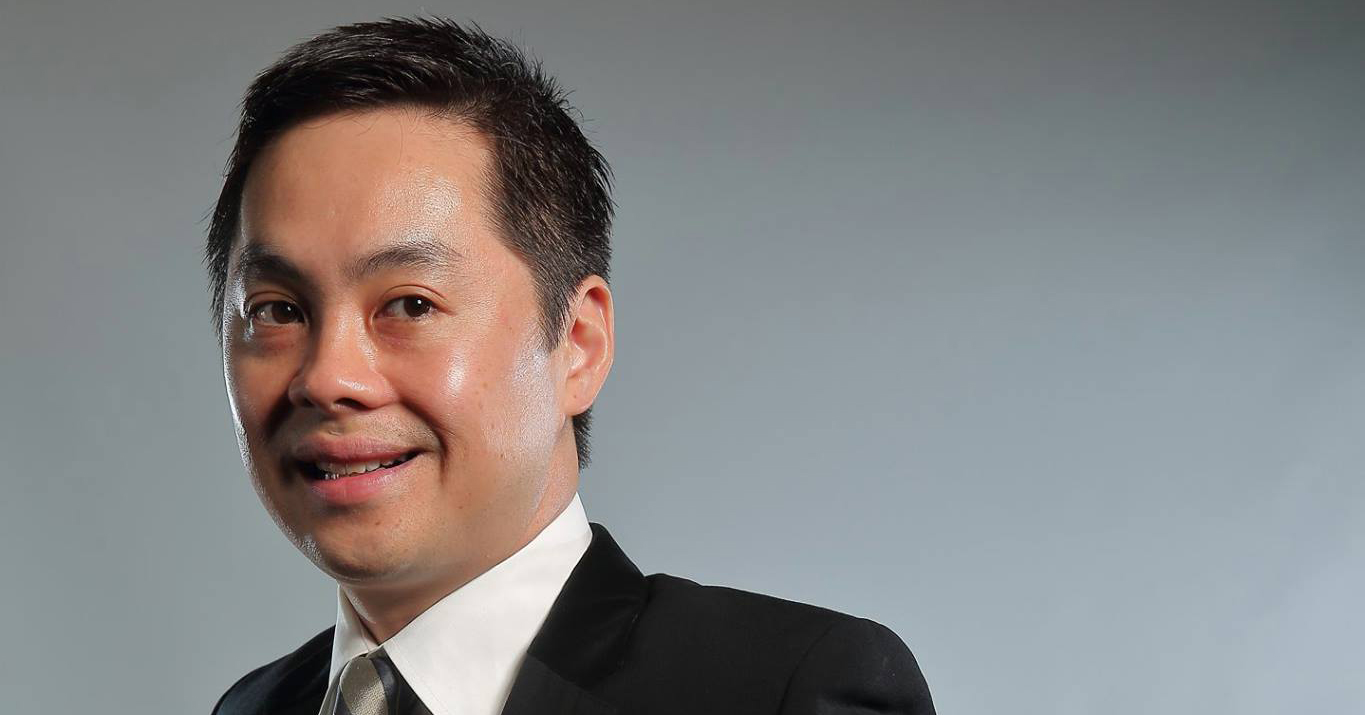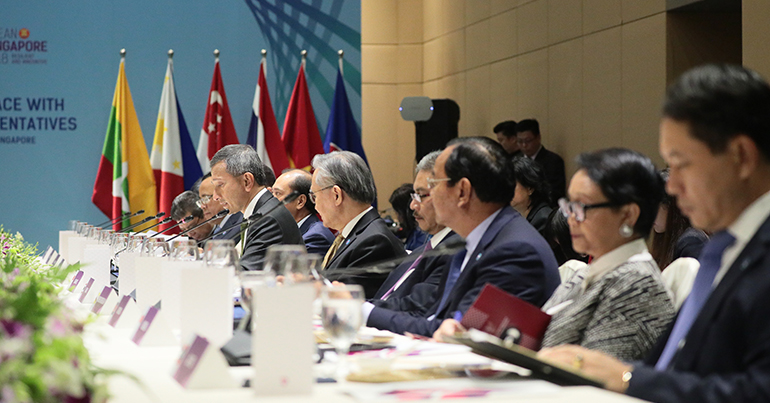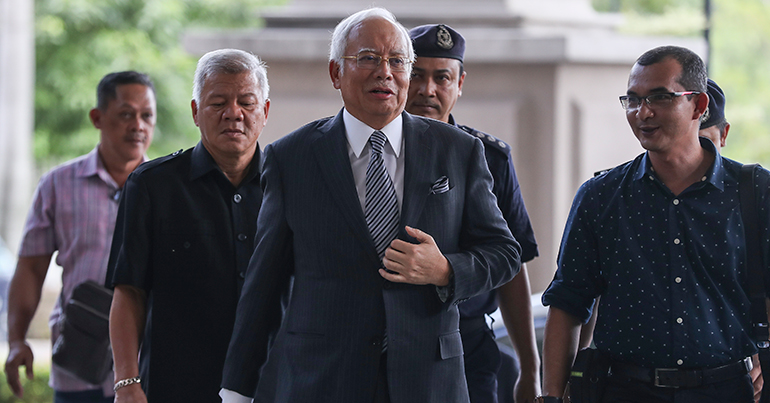The country’s representative for the Asean Intergovernmental Commission on Human Rights (AICHR) says they need to be smart about the way forward, but “Malaysians are hopeful”

The Asean Intergovernmental Commission on Human Rights (AICHR) was set up in 2009 with the aim to promote human rights in the region. In 2012, the commission successfully managed to get all Asean members to agree to its Asean Human Rights Declaration (AHRD), a landmark moment for the region in its commitment to upholding human rights.
Since then though, the declaration has faced strong criticism by the likes of Amnesty International, Human Rights Watch and the UN High Commissioner for Human Rights. The opprobrium centres on the fact that AHRD seems to propagate the concept of “cultural relativism”, wherein domestic law carries more weight than universal human rights.
Edmund Bon Tai Soon is the Malaysian representative to AICHR, and is coming to the end of his three-year term. He speaks to Southeast Asia Globe about the commission’s work, AHRD and human rights in Malaysia under its newly elected government.
How has your role at Malaysia’s Asean Intergovernmental Commission on Human Rights [AICHR] enabled you to contribute to the promotion and protection of human rights in the country?
The role of an AICHR representative is unique because one is both a human rights diplomat or ambassador for the country, and also an activist at the same time. Because we are tasked to act impartially, we cannot turn a blind eye or excuse rights challenges in our own country. No country is perfect. I take it that I represent the country, not necessarily the government, though some representatives will disagree.
There is a twin-track modality that can be adopted on matters of human rights diplomacy by AICHR representatives if they so wish. While I have been able to push for greater standards to be adopted in the region, I have also been able to effectively cooperate with Malaysia’s government agencies on issues such as freedom of expression and the media, the implementation of international human rights law by the courts, legal aid, gender equality, water and sanitation, and the rights of women, children, the indigenous, persons living with disabilities, migrant workers and refugees.
This collaboration involves the provision of advisory services and technical assistance. The AICHR representative must be able to credibly call for more from the region, yet credibly find acceptance at home with our civil servants to implement what the representative seeks. There is a great deal of work out of sight of the public that goes on, and purely making public statements calling out issues does little to add value to the work of our government officials. Trust and productive collaboration with our domestic stakeholders are key.

What have been some of the difficulties or frustrations you have faced domestically and regionally?
Asean works on a basis of consensus, and the model is one of cooperation. The bloc was primarily tasked to advance and protect each country’s economic and security interests, not human rights per se. Therefore, there is still fear and insecurity to adopt international human rights standards too quickly. We must have great patience and be able to diplomatically work within the Asean system to encourage countries to take on board more. There are some countries that have tried to use all means to push back on the AICHR’s progress these past few years.
I have been saying to the AICHR that it is like we are family in a house, but people outside the house are talking about us more than ourselves
In spite of the difficulties we faced at home, I am proud to say that AICHR Malaysia has not once shirked from taking the higher human rights position in the region. Not once have I blocked or stopped any country from moving ahead with their human rights programming; in fact, we have assisted and worked well with other countries.
But it is time that the AICHR looks into having a “minus-x” or “coalition of the able and willing” to take on more emotive issues such as the refugee crisis originating from Myanmar.
Groups outside of Asean appear to be more concerned about the issue than the Asean bloc, and I find it very strange because we have the power to be more constructive in our approach. I have been saying to the AICHR that it is like we are family in a house, but people outside the house are talking about us more than ourselves.
How effective is the Asean Human Rights Declaration (AHRD) and how can the public better utilise it?
There has been much critique about the AHRD, but there is an understanding reflected in a statement by the Asean leaders that the AHRD cannot operate below international human rights standards. Therefore, it is up to the AICHR to interpret it in a way that is expansive, rather than considering it as limiting the rights of the Asean peoples.
To this end, I issued the AICHR Malaysia’s “General Observation No. 1/2016: Interpretation of Articles 6, 7 & 8 of the Asean Human Rights Declaration 2012 to explain how we should be reading the AHRD.
Since 2016, we have also managed to have our annual reports and selected summary reports of our programmes published on the AICHR website. These initiatives are to encourage more discussions on the AHRD and generate examples on how the Declaration may be used for protective effect.

Following Malaysia’s historic general election this year, there have been encouraging pledges from the Pakatan Harapan (PH) government relating to the ratification of core human rights treaties and the repealing of archaic laws. Do you see Malaysia as a leading example in the region?
Yes, of course; and it is heartening that delegates from other countries in the region say they are looking to Malaysia as the new beacon of hope and democracy. Recently, I briefed the foreign minister, Saifuddin Abdullah, as part of the new administration in government regarding AICHR Malaysia. I recommended several strategies with actionable timelines to achieve the promises numbered 26, 59 and 60 in the [PH] election manifesto. We could start with the low-hanging treaties and laws that, with a certain amount of will and strategic execution, can be achieved quite easily. Certain others could do with more dialogue towards greater acceptance. Inter-agency meetings should focus on ratification, and human rights experts [should] be invited to assist in navigating any roadblocks. There has already been a good amount of work put in by the various ministries facilitated by the Ministry of Foreign Affairs that can be built on. But we need to be smart about it in the way forward. Malaysians are hopeful, and I… offered my office’s technical legal support when I met with the [minister in charge of law] recently.
[manual_related_posts]
Corruption is currently under the spotlight in Malaysia, with criminal charges facing former Prime Minister Najib Razak and others in the 1MDB scandal. Over in the Philippines, we recently witnessed the conviction of Imelda Marcos for graft. What steps is Asean taking to prevent corrupt practices from impacting the region?
The AICHR has been hosting programmes on the concept of business and human rights, commonly known as BHR. This is the next big thing in the human rights scene. When we were talking about human rights 20 years ago, no one believed we could have taken it so far; and we are going further. Now BHR will impact how governments and businesses do business. It encompasses not only supply-chain issues such as human power, migrant workers, working conditions and gender inclusivity and diversity; the concept also seeks to wipe out corruption and money-laundering practices. In March 2015, Malaysia committed itself to drafting its National Action Plan on Business and Human Rights (NAPBHR), and at my meeting with Liew Vui Keong, the minister in charge of law, I raised the steps that could be taken with my office to accelerate the progress on it.
[The Malaysian] Human Rights Commission (Suhakam) had commendably done most of the ground work by publishing and sharing its Strategic Framework on the NAPBHR, which should be used to move ahead. Thailand plans to launch its NAPBHR soon, while Indonesia and Myanmar have announced that they will develop theirs.

